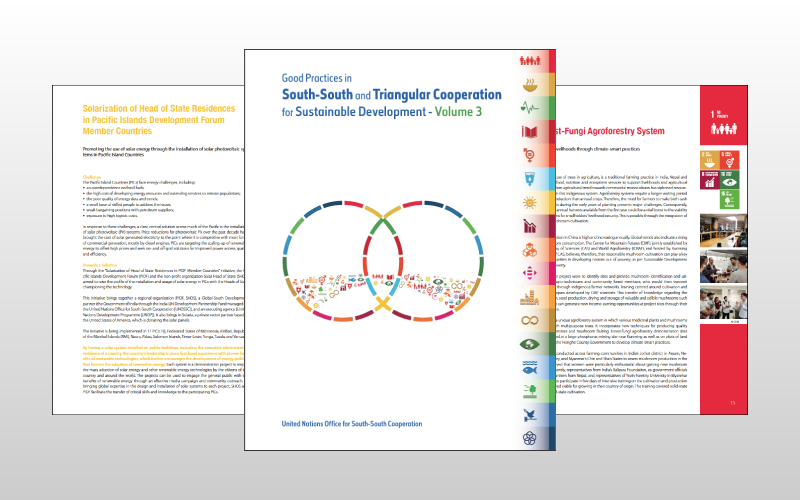
The United Nations Day for South-South Cooperation is celebrated on the 12th of September. Due to COVID-19 restrictions, an online event held on 10th September highlighted the vital role of international solidarity and collaboration to support the delivery of the Sustainable Development Goals (SDGs) and the role of South-South Cooperation as a means for that.
The event also marked the publication of the 3rd Good Practices in South-South and Triangular Cooperation for Sustainable Development. The new volume features around 200 good practices presented by 35 Member States, 23 United Nations entities and many other development partners including civil society organisations and private sector. The WFP Centre of Excellence against Hunger Brazil shared a few examples of good practices that are featured in the publication.
The first one is about the WFP collaborative work with the African Union (AU) to include school feeding into the Continental Education Strategy for Africa (CESA), found on page 393 of the document. Through South-South and Triangular cooperation, WFP offices and the WFP Centre of Excellence developed a series of instruments, frameworks and documents to make school feeding an integral part of the CESA. The complete handover of these products occurred in 2020, and the AU is currently moving forward with full ownership. The document also marks how important the knowledge exchange between the AU with the Government of Brazil was, especially with the Brazilian Cooperation Agency and the Brazilian Fund for Education Development.
A second case details how the WFP Centre of Excellence has used digital technologies to improve South-South and Triangular Cooperation and provided technical assistance for resource mobilisation (this case is found on page 395). It mentions the technical assistance provided to Nepal in scaling up the national school meals pilot programme and details the collaboration with The Gambia and the support provided by the Centre of Excellence in linking the country’s school feeding programme with the national agriculture sector and in applying for international funds.
Finally, the third case featuring the WFP Centre of Excellence was the result of a collaboration with WFP Country Office in Mozambique, featured on page 81. It shows how the WFP Centre of Excellence’s South-South Cooperation fuelled exchanges with the Brazilian Cooperation Agency and the Brazilian Fund for Education Development. For this case, SSTC has catalysed the establishment the and scale-up of the Mozambican home-grown school feeding programme (PRONAE) tapping into the experience and expertise of the Government of Brazil. The short article highlights the process, outcomes and the ways forward planned by WFP in Mozambique and the new WFP Centre of Excellence’s Beyond Cotton project.
About the UN Day for South-South Cooperation
To highlight the importance of South-South Cooperation, the UN General Assembly in its resolution 58/220 decided to observe the United Nations Day for South-South Cooperation on 12 September every year. The date commemorates the adoption in 1978 of the Buenos Aires Plan of Action for Promoting and Implementing Technical Cooperation among Developing Countries (BAPA).




